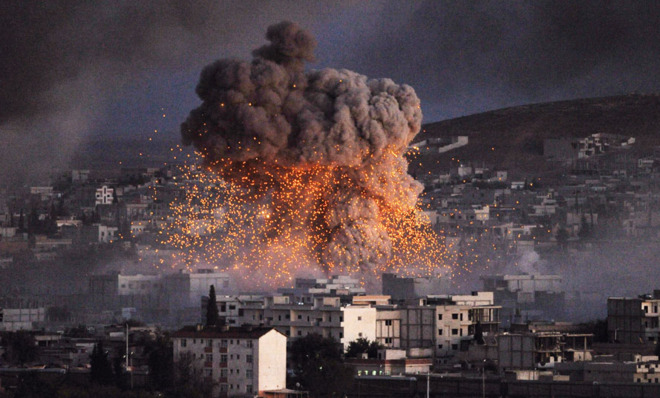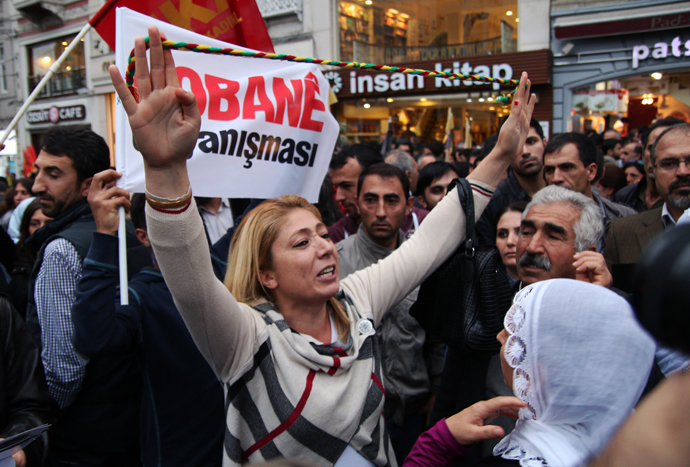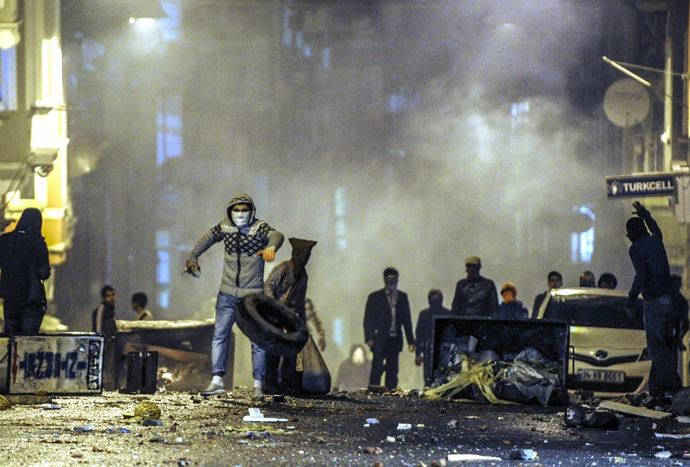Will the war against ISIS tear Turkey apart?
"This conflict will serve no one's interest. It is too dangerous."

A free daily email with the biggest news stories of the day – and the best features from TheWeek.com
You are now subscribed
Your newsletter sign-up was successful

Lately, it feels like Turkey has traveled back in time to the 1970s, a violent period when people on the left and the right clashed in the streets.
Now, fighting has once again flared here in this nation of 77 million. Only this time much of the violence is between rival groups of Kurds, an ethnic minority, which has long asked for greater self-rule in the Middle East.
On one side: the Kurdistan Workers Party (PKK), a banned militant and political group, which is still listed as a terrorist organization by Turkey, the United States and the European Union. On the other: a radical Islamist political party known as Huda-par, which grew out of a now defunct militant group known as Kurdish Hezbollah (it has no relation to its counterpart in Lebanon).
The Week
Escape your echo chamber. Get the facts behind the news, plus analysis from multiple perspectives.

Sign up for The Week's Free Newsletters
From our morning news briefing to a weekly Good News Newsletter, get the best of The Week delivered directly to your inbox.
From our morning news briefing to a weekly Good News Newsletter, get the best of The Week delivered directly to your inbox.

(Lightrocket via Getty Images)
The issue at stake is Kobane, a Syrian town on the Turkish border that's under attack by the Islamic State, the jihadi group commonly known as ISIS. Most of Kobane's residents are Kurds, and for weeks, thousands of their cousins in Turkey — among others — have been asking Ankara to come to their rescue. Some PKK fighters have even crossed the border to help.
So far, the Turkish government has stood on the sidelines. And while the Kurds and their American allies finally appear to be beating back the ISIS advance, Turkey's hands off policy has been polarizing.
The tipping point in the inter-Kurdish rivalry came last month when thousands of Kurds, including PKK supporters, took to the streets across to protest against Turkey's ISIS policy. Hundreds of Huda-par supporters entered the fray, and the two sides clashed, especially in Turkey's southeastern provinces, where protesters torched dozens of buildings and six cities implemented curfews.
A free daily email with the biggest news stories of the day – and the best features from TheWeek.com

(Getty Images)
The Turkish riot police — and in some cases the army — responded with tear gas, water cannons and rubber bullets. And in the end, more than 30 Kurds died in the protests and hundreds were wounded, though it's unclear who was responsible for their deaths.
For now, things have simmered down. The Turkish government said it would allow Iraqi Kurdish fighters to cross into Kobane. But many fear a wider conflict is brewing between the two Kurdish adversaries. Their history is a bitter one. Huda-par grew out of Kurdish Hezbollah, a militant and political organization that wanted to create an Islamic state in Turkey. When it emerged in the late 1980s, some say the Turkish government helped support it as a way to weaken the Marxist PKK.
The group's armed wing hasn't been active since 2000. But recent events have made some wonder if their return is imminent. "We call this a fight among brothers," says Sidki Zilan, a lawyer who has defended Kurdish Hezbollah members in court. "There was a ceasefire in 1996 but this never evolved to a peace agreement."
Since the recent violence, both groups have been pointing fingers, accusing the other side of starting the violence. About the only thing they seem to agree on is that the Turkish state is ultimately to blame — and that doesn't bode well for peace.
Indeed, the conflict over Kobane is now so tense that some say it could even derail the much-heralded peace process between the Turkish government and the PKK. "The peace process," says Meral Danis Bestas, a senior official for the political wing of the PKK, "is directly linked to the future of Kobane."
For instance, Ankara carried out airstrikes in Turkey against the Marxist group for the first time in two years. A spokesman for the Turkish prime minister's office did not return calls for comment. But as Bestas, the senior Kurdish official, put it: "This conflict will serve no one's interest. It is too dangerous."
She may be right.
This story was originally published on Vocativ.com: Will the war against ISIS tear Turkey apart?
More from Vocativ...
-
 The ‘ravenous’ demand for Cornish minerals
The ‘ravenous’ demand for Cornish mineralsUnder the Radar Growing need for critical minerals to power tech has intensified ‘appetite’ for lithium, which could be a ‘huge boon’ for local economy
-
 Why are election experts taking Trump’s midterm threats seriously?
Why are election experts taking Trump’s midterm threats seriously?IN THE SPOTLIGHT As the president muses about polling place deployments and a centralized electoral system aimed at one-party control, lawmakers are taking this administration at its word
-
 ‘Restaurateurs have become millionaires’
‘Restaurateurs have become millionaires’Instant Opinion Opinion, comment and editorials of the day